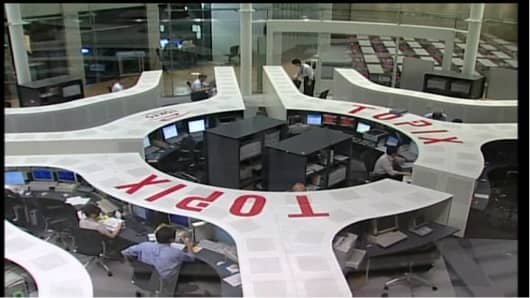Asian markets were heavily soldoff Friday, with the exception of Chinese stocks, as the specter of a U.S. recession haunted Asian investors as the U.S. dollar hit a three-year lower against the yen and gold and oil prices struck all-time highs.
The dollar tumbled to 104.65 yen, its lowest since May 2005, after a
slide in the U.S. currency towards the key 105 yen level triggered a wave of stop-loss orders. Gold surged to a new high of $973.10 an ounce, up more than 16 percent this year, and crude oil hit $103 a barrel for the first time in history, fueled by the weak dollar and a fire at a big European gas terminal.
This was after U.S. Federal Reserve Chairman Ben Bernanke, in a second day of congressional testimony, warned that some U.S. banks could fail. Jobs and inflation data also proved to be gloomy reading, reinforcing fear of a recession. (For full coverage of Bernanke's testimony, click here.)


